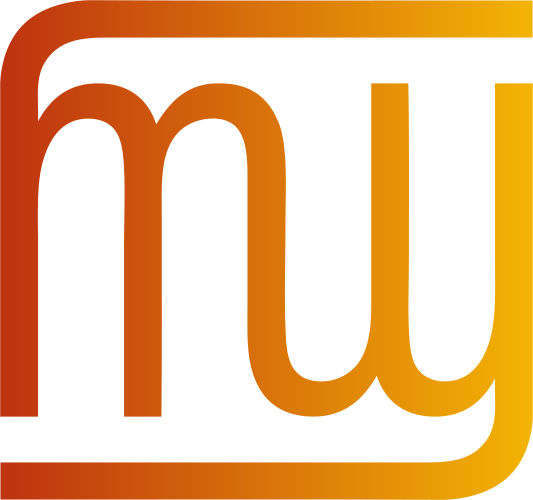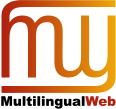 The W3C Internationalization (I18n) Activity works with W3C working groups and liaises with other organizations to make it possible to use Web technologies with different languages, scripts, and cultures.
The W3C Internationalization (I18n) Activity works with W3C working groups and liaises with other organizations to make it possible to use Web technologies with different languages, scripts, and cultures.
From this page you can find articles and other resources about Web internationalization, and information about the groups that make up the Activity.
Read also about opportunities to participate and fund work via the new Sponsorship Program.
What the W3C Internationalization Activity does
Selected quick links
Selected quick links
Selected quick links
MultilingualWeb speaker deadline coming, don’t delay!

We are expecting talks from Microsoft, Wikimedia, Mozilla, Joomla, the European Commission and CNGL representatives at the MultilingualWeb workshop in Luxembourg, and we will be filling the remaining slots soon. The deadline for submission of talk proposals is 10th February, so if you want to speak at the event please register as soon as possible. You can submit your proposal on the registration form.
We also recently announced that Ivan Herman, Semantic Web Activity Lead at the World Wide Web Consortium (W3C), will deliver the keynote talk.
This fourth MultilingualWeb workshop will be held in Luxembourg, hosted by the Directorate-General for Translation (DGT) of the European Commission.
The MultilingualWeb project is looking at best practices and standards related to all aspects of creating, localizing and deploying the Web multilingually. The project aims to raise the visibility of existing best practices and standards and identify gaps, with a view to helping content creators, localizers, tools developers, and others meet the challenges of the multilingual Web.
Participation is free. We welcome participation from both speakers and non-speaking attendees. For more information and to register, see the Call for Participation.
Unicode version 6.1 announced
The Unicode Consortium has announced the release of Version 6.1 of the Unicode Standard, continuing Unicode’s long-term commitment to support the full diversity of languages around the world. This latest version adds characters to support additional languages of China, other Asian countries, and Africa. It also addresses educational needs in the Arabic-speaking world. A total of 732 new characters have been added.
This version of the Standard also brings technical improvements to support implementers. Improved changes to property values and their aliases mean that properties now have easy-to-specify labels. The new labels combined with a new script extensions property means that regular expressions can be more straightforward and are easier to validate.
Over 200 new Standardized Variants have been added for emoji characters, allowing implementations to distinguish preferred display styles between text and emoji styles. For example:
26FA FE0F
26FD FE0E
26FD FE0F
Among the notable property changes and additions in Unicode 6.1 are two new line break property values, which improve the line-breaking behavior of Hebrew and Japanese text. Segmentation behavior was also improved for Thai, Lao, and similar languages.
Two other important Unicode specifications are maintained in synchrony with the Unicode Standard, and have updates for Version 6.1. These will be finalized in February:
UTS #10, Unicode Collation Algorithm
UTS #46, Unicode IDNA Compatibility Processing
New translation into Swedish
Snabbtips för internationalisering av webben (Internationalization Quick Tips for the Web)
This article was translated into Swedish thanks to Olle Olsson.
Ivan Herman to Keynote at the MultilingualWeb workshop in Luxembourg

Ivan Herman, Semantic Web Activity Lead at the World Wide Web Consortium (W3C), will deliver the keynote talk at the upcoming MultilingualWeb workshop. This 4th MultilingualWeb workshop will be held in Luxembourg, hosted by the Directorate-General for Translation (DGT) of the European Commission.
Ivan will give an overview of the current work done at the W3C related to the Semantic Web, Linked Data, and related technical issues. The goal is not to give a detailed technical account but, rather, to give a general, and accessible, overview and use this is a basis for further discussions on how that particular technology can be used for the general issue of Multilingual Web.
Formerly head of the worldwide W3C Offices program, Ivan has been with the W3C since 2001, and also holds a tenure position at the Centre for Mathematics and Computer Sciences (CWI) in Amsterdam. He is a member of IW3C2 (International World Wide Web Conference Committee), and of SWSA (Semantic Web Science Association), the committee responsible for the International Semantic Web Conferences series.
The MultilingualWeb project is looking at best practices and standards related to all aspects of creating, localizing and deploying the Web multilingually. The project aims to raise the visibility of existing best practices and standards and identify gaps, with a view to helping content creators, localizers, tools developers, and others meet the challenges of the multilingual Web.
Participation is free. We welcome participation from both speakers and non-speaking attendees. For more information and to register, see the Call for Participation.
New translations into Arabic, Japanese, Korean and Chinese
Arabic:
حجم النص في الترجمة (Text size in translation)
نموذج ترميز متعدد اللغات (Multilingual form encoding)
Japanese:
訳文における文字サイズ (Text size in translation)
多言語フォームのエンコーディング (Multilingual form encoding)
Web 上の言語 (Language on the Web)
Korean:
번역물의 텍스트 크기 (Text size in translation)
다국어 양식 인코딩 (Multilingual form encoding)
웹상의 언어 (Language on the Web)
(Simplified) Chinese:
文字大小和翻译 (Text size in translation)
多语言表单的编码 (Multilingual form encoding)
网站上的语言 (Language on the Web)
These articles were translated thanks to various groups within wintranslation.
New translations into Russian and Ukrainian
Ukrainian:
Призначення мови в HTML (Declaring language in HTML)
Розмір тексту в перекладі (Text size in translation)
Фонові зображення, які підтримують локалізацію (Background images that support localization)
Стилізація за допомогою мовних атрибутів (Styling using language attributes)
CSS3 та Міжнародний Текст (CSS3 and International Text)
Russian:
Назначение языка в HTML (Declaring language in HTML)
Размер текста в переводе (Text size in translation)
Фоновые изображения что поддерживают локализацию (Background images that support localization)
Стилизация с помощью языковых атрибутов (Styling using language attributes)
CSS3 и Международный Текст (CSS3 and International Text)
These articles were translated thanks to Alexandr Shlapak.
Video links now available for Limerick MultilingualWeb workshop

Video recordings of speakers at the MultilingualWeb workshop in Limerick are now available, in addition to the previously uploaded slides and IRC notes.
Entitled “A Local Focus for the Multilingual Web”, the workshop surveyed and shared information about currently available best practices and standards that can help content creators and localizers address the needs of the multilingual Web, including the Semantic Web. Attendees also heard about gaps that need to be addressed, and enjoyed opportunities to network and share information between the various different communities involved in enabling the multilingual Web. The second day was given over to an Open Space discussion with breakouts.
Work is under way on a summary report for the workshop, which will be announced in due course.
Building on the success of the Madrid, Pisa and Limerick workshops, preparations have now begun for the next workshop, to be held in Luxembourg, at the European Commission, in March 2012. See the Call for Participation.
Thanks to VideoLectures for hosting the videos.
New translations into Russian and Ukrainian
Ukrainian:
Створення Невеличких SVG Сторінок в Арабській мові, Івриті та інших скриптах, які вирівнюються справа наліво (Creating SVG Tiny Pages in Arabic, Hebrew and other Right-to-Left Scripts)
Russian:
Создание небольших SVG Страниц на Арабском языке, Иврите и других скриптах, которые выравниваются справа налево (Creating SVG Tiny Pages in Arabic, Hebrew and other Right-to-Left Scripts)
These articles were translated thanks to Alexandr Shlapak.
W3C Workshop, Call for Participation: The Multilingual Web – The Way Ahead

15 – 16 March 2012, Luxembourg. Co-located with the European Commission’s Language Technology Showcase Days, and hosted by the Directorate-General for Translation (DGT) of the European Commission.
The MultilingualWeb project is looking at best practices and standards related to all aspects of creating, localizing and deploying the Web multilingually. The project aims to raise the visibility of existing best practices and standards and identify gaps. The core vehicle for this is a series of four events which are planned over two years.
After three highly successful workshops in Madrid, Pisa, and Limerick, this final workshop in the series will continue to investigate currently available best practices and standards aimed at helping content creators, localizers, tools developers, and others meet the challenges of the multilingual Web.
Participation is free. We welcome participation from both speakers and non-speaking attendees. For more information, see the Call for Participation
New Working Draft of Requirements for Japanese Text Layout
A new version of Requirements for Japanese Text Layout has just been published as a Working Draft.
The plan is to replace the current W3C Working Group Note with the content of this new Working Draft after a period of review.
This document describes requirements for general Japanese layout realized with technologies such as CSS, SVG and XSL-FO. It is also being used by developers of other technologies, such as ebooks. The document builds on and further develops the Japanese standard for text layout, JIS X 4051.
This second version of the document contains a significant amount of additional information related to hanmen design, such as handling headings, placement of illustrations and tables, handling of notes and reference marks, etc.
Please take a look at the new version, which is available in English and Japanese, and send any comments to public-i18n-cjk@w3.org (subscribe at the archive main page). Use “[JLReq]” in the subject line of your email, followed by a brief subject.
Send any comments before the end of December. We hope to publish the final version of the updated Working Group Note early in the New Year.